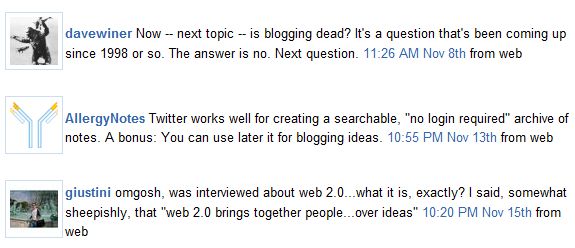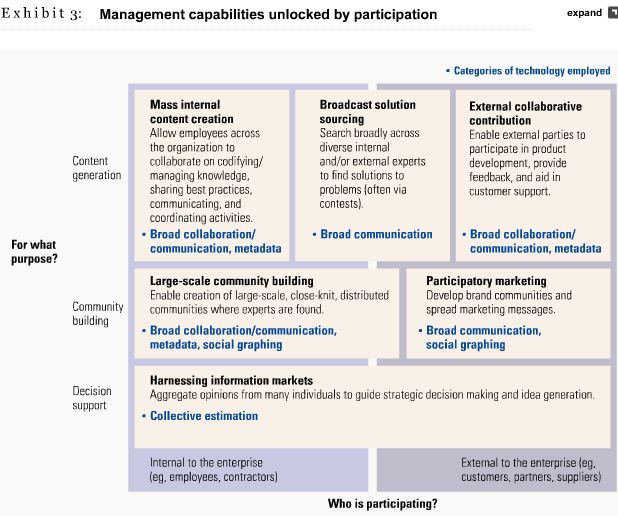After looking around and trying just to figure out the value and metrics for many social marketers last set of projects, I’ve come to 2 conclusions that everyone’s a social media expert or a life coach and I’m unable to validate if they are any good at what they do. As an aside, it also appears that neither of which appear to generate significant cash outside of the typical Ketchum global account, which didn’t really work out for 1 particular expert.
Is social media a sustainable niche for marketing consultants? Is it a hype market? Is social media a market about a concept, rather than a problem or unmet need? Is it just another channel in the promotional mix?
The central concept around why you might need to have a social media expert on the payroll is plausible: Things are changing thanks to the internet and you need smart people to help you out who “get it”.
The real change in the marketplace is that anyone can be anything online and anything can happen. The good, the bad and the ugly. Social Media’s core value thread is effectively chaos management as it relates to online content and interactions for brands/products. Noble goal, definitely a big problem – almost too big. Too much room around the edges and way too many corner cases.
Wanted Social Media Expert
So when do you need this social media thing and who can help? Just about anyone apparently. There are like hundreds of experts on LinkedIn and Google returns over 45,000 pages on “social media strategist“. The good news is there are folks out there doing good things for the industry in the industry like the Social Media Club who try to educate and connect folks to learn and do good.
What specifically qualifies you as a social media strategist? Just what is the social media benchmark? “Authority”, followers, the number of stickers of cool start ups with lame business models on your financed MacAir and other social media “validation” metrics are interesting components of how folks decision who is important and who is not, but it doesn’t seem to have any direct relationship to a persons ability to build strategies and execute.
Buzzwords and Platforms
Well – if they know about Facebook, Twitter and Friendfeed then they have to be an expert. The curious thing is how folks people equate social media with tool usage and understanding. TechWag thinks you should inquire on the following when looking for a social media guru:
Are they using the tools, ask them to show you their blog, their twitter, their LinkedIn , their Facebook, their friend feed, their social median, their digg, and all the other systems they tie into. Ask them in-depth questions about how well this worked for them, what they learned, how that differed from their expectations. If they are not using the tools, or they do not know how they work, or have no personal or at least empirical information about what has been successful and what has not been successful based on their own experience, then it is time to move along now.
To drawn on a personal parallel: I know how to use MSFT Access and use the query builder thingy, but you do NOT want me running your production Oracle instance.
Tool awareness does appear to be an important check box in the “is someone qualified process”, but it shouldn’t be the decision criteria. Maybe it a better way is to understand if they are in on the trends and have a futurist view on things. That’s hard too, since there a a bunch of reasonable researchers and writers out there, which are important skills, but may not be deliver results. Take Matt Rhodes, which demonstrates that sometimes just making assertions and predictions on tools and social media might make you an expert :
But in 2009 I think we will see the total number of people using Twitter, and the number of networks that go with this, increase quite dramatically. I think we will start to see prime time television using Twitter as a means of getting audience feedback or even running competitions; and newspapers taking comment through Twitter into print.
I guess he didn’t know about Hack the Debate, since I sorta think this is already happening – Rick Sanchez, the Denver plane crash, Israel and Gaza and a host of others leverage social content. The point is – Matt’s statements can easily be seen as authoritative, futuristic and thought leading by the uninitiated, when it may actually just be a series of assertions based on already happening activities. This guy might even interview well on some podcast somewhere, but might not actually be a guru.
The thing is, if you think you are, then maybe you are. I think I can, I think I can… chug, chug, chug. I’ve always been an attitude is everything kinda person, but these Zen-like qualifications for being a social media expert is super intriguing to me.
Blogs, microblogging, social networks and buzzwords are important too, as you may have notice with them littered throughout this point. What is the right mix, I mean blogging is out right? Experts have blogs and use twitter and have conversations online line. No really – see below and pick the expert:

In theory one could assert each is an expert – they know the tools, one was interviewed on web 2.0 and the other apparently knows something about blogging per his tweet. Your content as your proof points is an interesting social media dynamic. Your posts, your links and your interactions are your qualifications in social media. So if you Tweet well, you do well.
Remix and Replay
Social media appears to remix news, manufacture thought leaders and generally allow for content generation without validation. The limited ability to validate isn’t just part of the challenge when looking for “experts”, but it also impacts the overall marketplace. There is however no doubt social media is a legitimate discipline, the doubt/challenge lies instead how do you qualify to consider yourself a social media expert/guru/strategist. It could be that once you know the tools, then it’s all about managing the marketing mix and the brand which are skills which are reasonably verifiable, right?
Drink the Kool-Aid
So it appears that social marketer may be plagued with the same soft qualifications as the traditional marketer segment. So how can you differentiate? Go to conferences, Tweetups and other social events where other social media folks gather to increase your understanding. Street cred appears also to be directly associated with the number of air miles logged to attend industry events. So as you can see once you immerse yourself in the industry, there are clearly some social media metrics to track outside of followers, which could help qualify yourself to be a social media person. If you don’t have metrics, use someone else’s metrics who is commonly held as an expert.
If we keep participating in social media event, staying on top of the tools and collaborate with other social media leaders, then may be social media will save the planet. Think about it, social media experts recycle content from other social media-ites, use anecdotal examples from Fortune 500 companies or “a client of mine” statements to bolster expertise. Vague client references are also a rant at Techwag:
Watch out for people who have generic case studies. I have seen this one far too many times in the last few months. People talking about case studies, but not understanding the dynamics behind them. Dell didn’t just throw together their social networking system, they thought it out, they figured out who was doing what, and took what worked for them. Anyone who says “well Dell does it”, but does not understand how Dell did it probably cannot help you very much in the social networking space.
I have no idea how Dell does it, but that is consistently the quality of use cases which are out there from a bunch of folks. Social media content production and trends are be propagated by those that stand to make the most from it – content creators and “expert” consultants. It’s sorta like Amway without structure, metrics and precious gem status goals.
In the end, I wonder if everyone isn’t drinking their own kool-aid in this mad dash for social media expertise. I wonder how many followers Jim Jones would have on Twitter and fans on Facebook? If traditional authority metrics continue to be used rather than traditional metrics, then just about anything can happen.
Maybe Carvalho has it right when trying to find a person to help you with social media:
You need to find somebody (who) believes in the product, maybe somebody that’s an evangelist, and really help that person get the job done online,” Carvalho said. “You can’t expect a person (who) knows the tools to also be able to genuinely go into a community and ignite people to start talking.”
Maybe it isn’t about metrics, evangelism, references and case studies, perhaps the tastiness of one’s Kool-aid is all that matters to be an expert.








